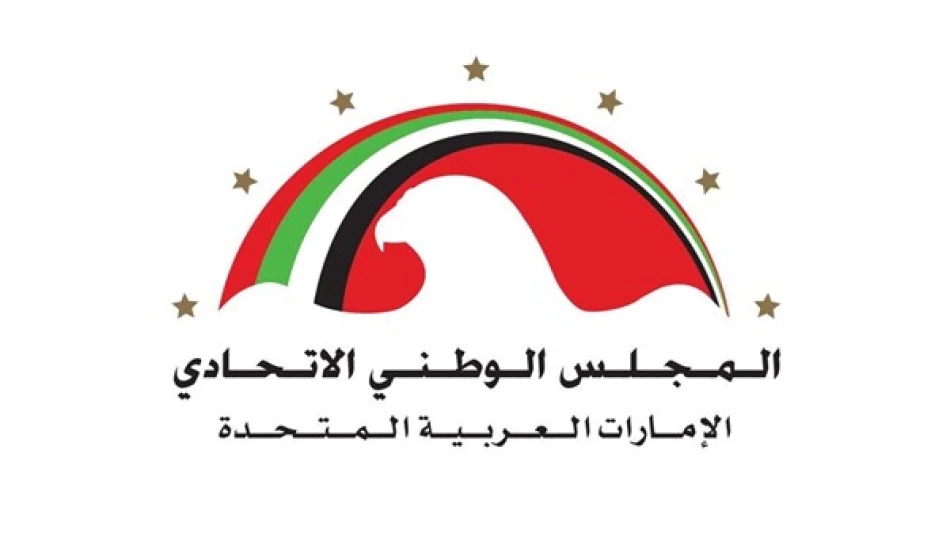
UAE's Federal National Council Participates in WTO Parliamentary Conference Steering Committee Meeting
UAE Pushes for AI-Driven Global Trade Reform at WTO Parliamentary Conference
The United Arab Emirates is positioning itself as a leading voice for modernizing global trade systems, with a senior parliamentary official calling for artificial intelligence integration and climate-conscious policies to reshape the World Trade Organization's approach. Dr. Marwan Obaid Al Muhairi's intervention at the 55th WTO Parliamentary Steering Committee meeting in Geneva signals the Gulf nation's ambition to influence the next phase of multilateral trade governance.
The UAE's Vision for Future Trade
Speaking at the high-profile Geneva gathering attended by WTO Director-General Dr. Ngozi Okonjo-Iweala, Al Muhairi outlined an ambitious agenda that extends far beyond traditional trade discussions. His proposal centers on creating an "inclusive and accessible global trading system" that prioritizes sustainability, technological innovation, and climate resilience.
The timing of this intervention is significant. As global supply chains continue recovering from pandemic disruptions and geopolitical tensions reshape trade flows, the UAE appears to be leveraging its position as a regional hub to advocate for systemic changes that could benefit emerging economies.
AI and Technology at the Center of Trade Evolution
Al Muhairi's emphasis on artificial intelligence and modern technologies reflects the UAE's broader economic strategy. The country has invested heavily in becoming a regional tech hub, with initiatives like the UAE AI Strategy 2031 aiming to make it a global leader in artificial intelligence applications.
For global traders and supply chain managers, this focus on AI integration could signal upcoming changes in how international commerce operates. Automated customs processing, predictive supply chain management, and AI-driven trade finance are likely areas where the UAE sees opportunity for both efficiency gains and competitive advantage.
Climate Trade Policies Gain Momentum
The UAE's call for environmental standards in trade agreements aligns with growing global pressure for climate-conscious commerce. This positioning is particularly strategic given the country's role as host of COP28 and its stated commitment to achieving net-zero emissions by 2050.
The proposal to integrate climate measures into national trade policies could create new compliance requirements for businesses operating in UAE markets. Companies may need to demonstrate environmental credentials to access preferential trade terms, similar to emerging frameworks in the European Union and other jurisdictions.
Supporting Emerging Economies and SMEs
Al Muhairi's focus on integrating developing economies and supporting small-to-medium enterprises reflects practical concerns about trade inequality. The UAE's geographic position between Europe, Asia, and Africa gives it unique insight into how current trade systems can exclude smaller players.
This approach mirrors successful strategies employed by Singapore and Hong Kong, where government support for SME internationalization has created thriving trade ecosystems. For investors, this suggests potential opportunities in fintech, logistics, and trade facilitation services targeting smaller businesses in emerging markets.
Implications for Global Trade Architecture
The UAE's comprehensive reform agenda comes as the WTO faces criticism for being slow to adapt to modern economic realities. By proposing concrete solutions around AI, climate action, and supply chain resilience, the Emirates is positioning itself as a constructive partner in multilateral trade reform.
The emphasis on food security and energy security within supply chain discussions reflects regional priorities but also global concerns highlighted by recent crises. This could lead to new international frameworks for strategic resource trading, potentially creating investment opportunities in agricultural technology and renewable energy infrastructure.
For multinational corporations, the UAE's vision suggests a future where trade agreements increasingly incorporate ESG criteria, technological standards, and resilience requirements. Companies that proactively align with these emerging standards may find themselves better positioned in future trade negotiations and market access discussions.
Most Viewed News

 Layla Al Mansoori
Layla Al Mansoori






